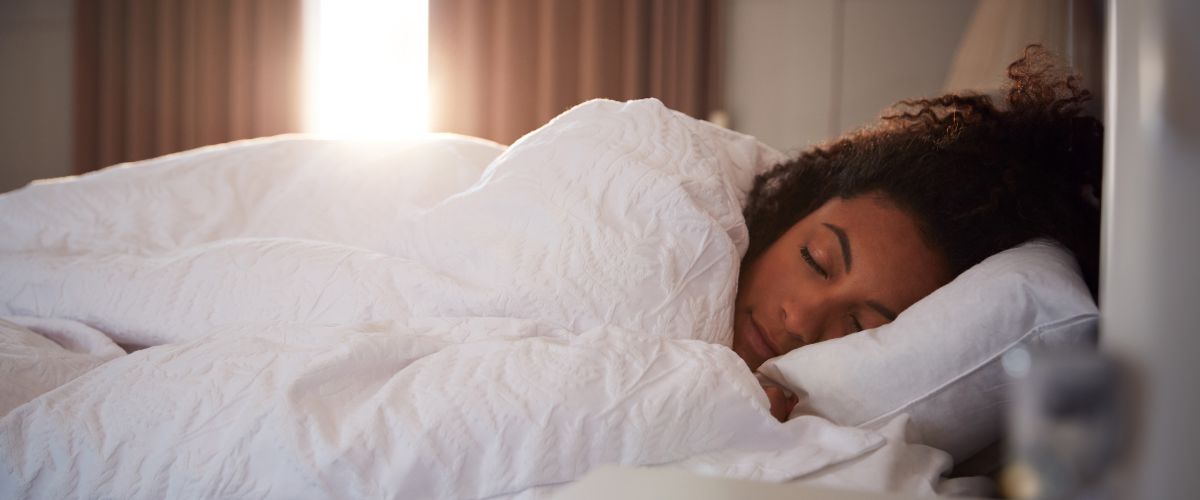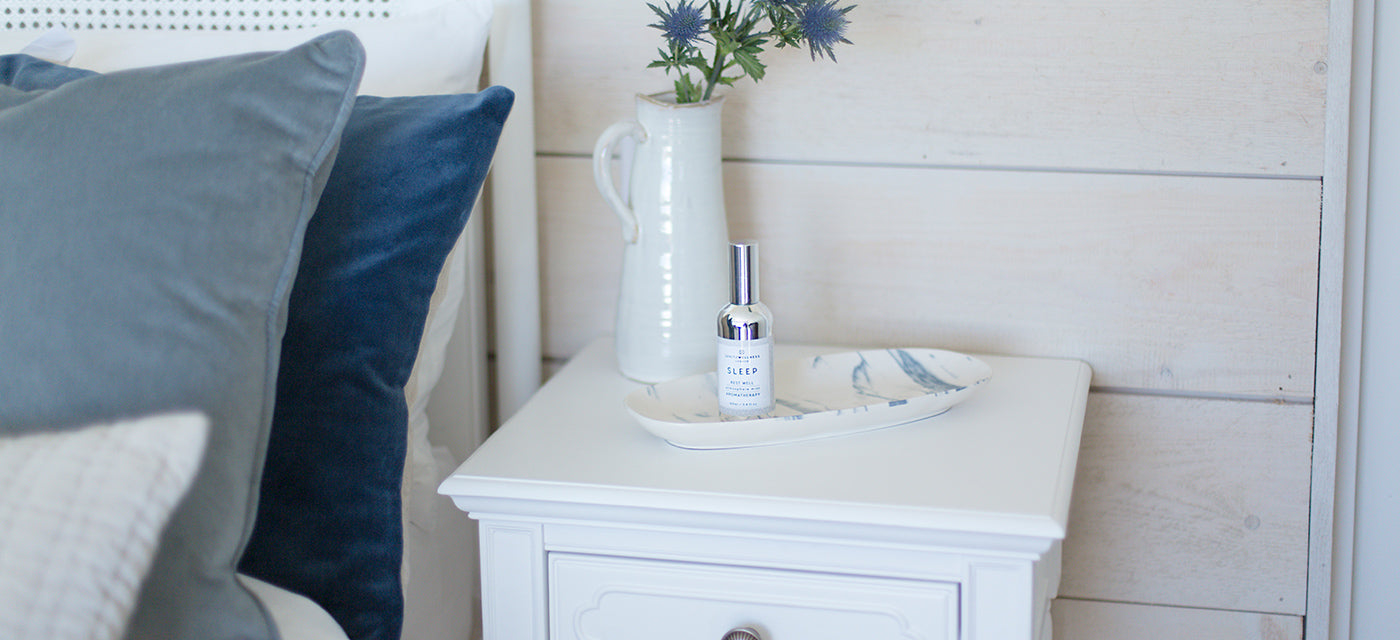Could falling for a common sleep myth be where we’re going wrong?

Sleep is one of our most natural and basic needs, yet for many, it can be hard to achieve; which isn’t great news for our emotional or physical health.
“Good sleep is a foundation for good health and a happier frame of mind,” according to Vitality partner and mental health app Headspace.
Sadly, though, almost 1 in 5 people in the UK aren’t getting enough sleep.
But sleep is the gateway to a host of benefits, from boosting our immune system to maintaining a healthy weight and improving our mental wellbeing.
Given that we spend around one-third of our lives in slumberland, it's a good idea to consider whether we are doing it properly.
So, to make sure you are getting the Zs you need, we’re putting some sleep myths to bed for World Sleep Day once and for all.
Myth 1: Once a poor sleeper, always a poor sleeper
Around one-third of Brits suffer from insomnia. This is a condition that impacts peoples’ ability to fall asleep or stay asleep long enough to wake up feeling rested.
But fear not, there are some ways that you can improve your sleep pattern that are relatively simple to adopt.
Altering your sleep habits, such as through exercising regularly and spending time outside, can help to improve insomnia.
Dr Rosie Godeseth, Vitality’s Medical Director of Health, says that getting active can provide “a natural boost to melatonin – our sleep hormone – and improve sleep quality at night.”
Aerobic activity, like going for a walk or run, has been proven to be particularly effective in helping to alleviate symptoms of insomnia and can help you get a deeper sleep as doses of natural light regulate your body clock.
That being said, it doesn’t happen overnight.
Even though studies show that physical activity can have immediate positive effects, researchsuggests that the full benefits to our sleep kick in over time.
Myth 2: We can catch up on sleep
If you have been having a few bad night’s sleep, or one too many late nights, you could be suffering from sleep debt – otherwise, known as ‘sleep deficit’.
This is the difference between the amount of sleep needed, compared with the total amount you get.
A common misconception is that we can catch up on sleep, if you haven’t got your recommended seven to nine hours.
However, if you’re behind on sleep, it’s not easily rectified by bingeing on Zs over the weekend.
One study found that weekend sleeping does not make up for lost metabolism caused by sleep debt, and can actually do more harm than good, as it disrupts our natural sleep pattern.
It’s recommended to aim for regular bed and wake times in order to recover from any sleep debt lost.
Myth 3: More sleep is good for you
So, we’ve established that too little sleep isn’t good for us.
But it’s also true that too much sleep can also be the catalyst for health risks, too.
Sleeping for too long can actually increase our health risk for coronary heart disease and diabetes, studies show.
The NHS recommends a seven to nine hours of sleep for a healthy adult.
Getting more than this can actually make us feel more tired the next day.
To avoid this, Godeseth advises having a warm bath, or practicing some breathwork before bed to help you wind down and improve your sleep quality.
Or if you need an extra boost to get out of bed in the morning, try placing your alarm clock on the other side of the room.
Why not follow Millie Harrison, a yoga and meditation expert, in a new breathwork exercise for Vitality below:
Myth 4: A nightcap will do the trick
Although some people find that alcohol can help them get off to sleep quicker, consuming alcohol, especially in excess, can result in “poor quality sleep and affect how we function day-to-day”, according to Dr Godeseth.
A spokesperson for Headspace also notes: “Alcohol alters what is called ‘sleep architecture,’ the natural flow of sleep through different stages such as deep sleep, REM sleep, and light sleep.”
Even a single glass of wine close to bedtime can result in:
- Lighter sleep
- Restlessness
- Shorter sleep time and quality
So, before fixing up a nightcap, perhaps reconsider your night-time beverage.
Herbal teas, such as chamomile and peppermint, water and even cherry juice have all been found to promote sleepiness.
Myth 5: When I eat won’t impact my sleep
Experts recommend eating your last meal – a mix of complex carbs and protein – at least three hours before going to bed.
One study actually found that eating a diet rich in fibre and protein leads to deeper sleep.
Eating late at night releases insulin, which signals your body to use food for energy that can interfere with sleep.
By eating earlier, it allows time for digestion and improve your ability to fall asleep.
There are also foods that can disrupt your sleep, too.
Try to avoid foods like citrus fruits, spicy or fried foods as these are hard for our digestive system to process and can trigger indigestion or heartburn if eaten too close to bedtime.
And onto one of the age-old questions: does cheese really give us nightmares?
While many consider this the stuff of old wives’ tales, studies suggest that this is more likely to be to do with the consumption of fatty food late at night.
Another theory links it to the brain chemical tyramine, which triggers neurotransmitters that can affect our sleep.
However, considering this chemical is also found in chocolate – a food that isn’t associated with bad dreams – this idea might be a red-herring.
Myth 6: Napping is bad for you
Taking a quick kip – or ‘disco nap’ – is a something we can all be partial too – and with good reason.
In fact, The Sleep Charity states that napping “can give you as much energy as two cups of strong coffee, but the effects are longer lasting.”
But that doesn’t mean you should be grabbing 40 winks every chance you get.
A planned daytime nap can help improve alertness, mood and memory while relieving stress and fatigue.
But there are a few variables that you should bear in mind before getting your head down.
“The important thing is to sleep no longer than 15-20 minutes as you can go into a deeper sleep if you sleep any longer which can lead to feeling groggier afterwards rather than more energised,” says Dr Godeseth.
She adds: “It is best to nap before 3pm to avoid interfering with night-time sleep and also try to nap in a restful sleep environment such as a dark and quiet room.”
If, after adopting some of these healthier sleeping habits, you’re still not getting enough sleep and it is affecting your daily life, Dr Godeseth suggests speaking to a GP or a sleep specialist.
“Your doctor is there to help find the underlying cause and discuss some options to improve your sleep,” she concludes.



